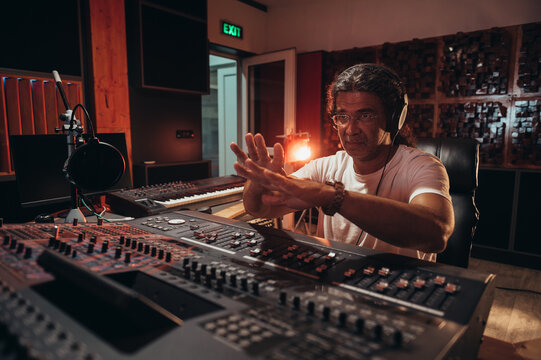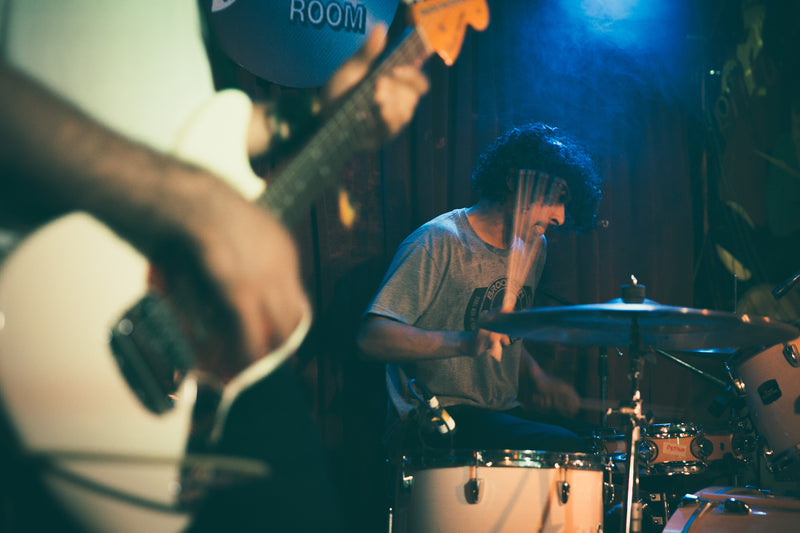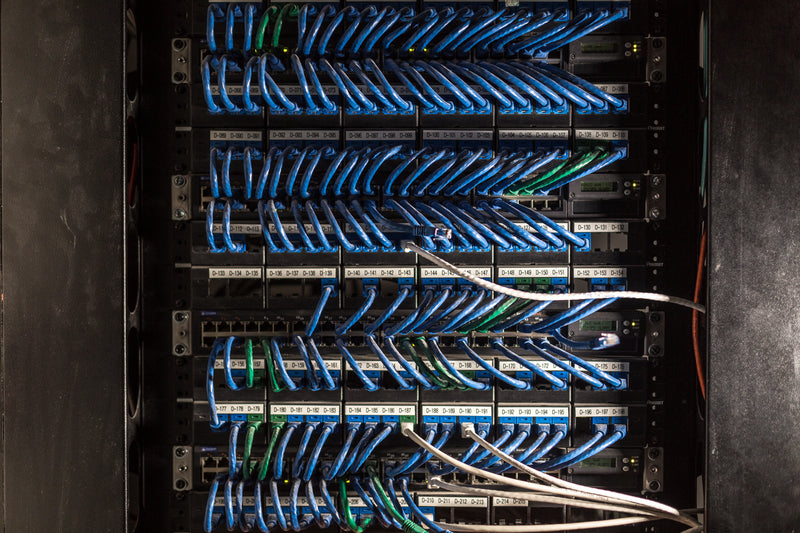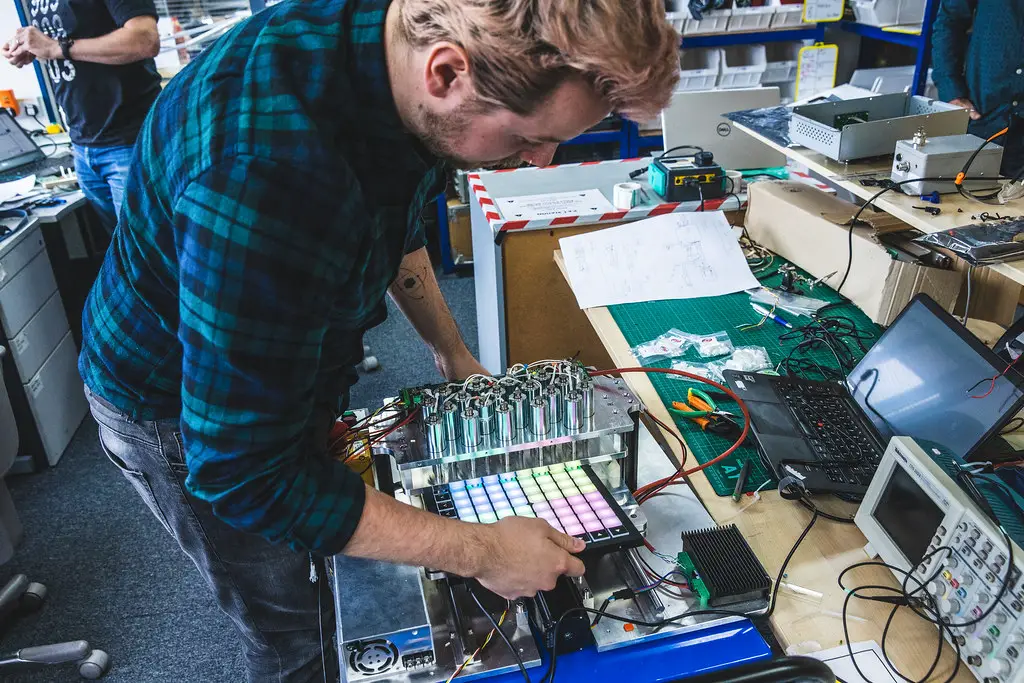Have you ever found yourself tapping your foot to a beat, lost in the rhythm of a song? Have you ever wondered what it would be like to create that beat yourself? Ever thought about How to Get Into Music Production? Music production is a fascinating and rewarding field that allows you to turn your passion for music into a career. But where do you start? How do you transform your dreams of becoming a music producer into reality? In this blog post, we’ll explore the essential steps to getting started in music production and how to make your dream a reality.
Table of Contents

Understanding the Basics: What You Need to Know Before Starting Music Production
Music production is a challenging yet fulfilling career choice. Before starting, it’s important to understand the basics of music theory, sound engineering, and digital audio workstations (DAWs). Brushing up on your knowledge in these areas will help you better understand the nuances of music production. Additionally, being familiar with different genres and styles can help you develop your own unique sound.
It’s also essential to invest in quality equipment, including speakers or headphones, MIDI controllers, and software plugins. Take time to research and choose tools that fit both your budget and needs.
Music production requires dedication and practice; start by experimenting with loops or composing simple tracks to build up your skills gradually. Don’t hesitate to seek feedback from other producers or musicians as well. Building connections within the industry can be valuable for growth opportunities down the line.
In summary: before diving into music production, ensure you have a solid understanding of basic theory concepts like sound engineering or DAWs while researching high-quality equipment suited for your budget. Dedication practices are crucial consider starting small with experimentation before building a network that provides constructive criticism along with possible growth opportunities eventually.

Choosing the Right Equipment: Essential Tools for Music Production
When it comes to music production, having the right equipment is crucial. Investing in a quality computer is a must, as it will serve as the backbone of your music production setup. Look for one with a fast processor and plenty of RAM to handle the demands of music software. A digital audio workstation (DAW) is also essential, as it allows you to record, edit, and mix your music. There are many DAWs available on the market, so take some time to research and find one that suits your needs and budget. Other important tools include studio monitors, headphones, microphones, and MIDI controllers. While it can be tempting to splurge on expensive gear, remember that skill and creativity are more important than fancy equipment. Start with the basics and upgrade as you grow in your music production journey.

Learning the Craft: Tips and Tricks for Improving Your Music Production Skills
To improve your music production skills, it’s important to practice regularly and seek feedback from others. Experimenting with different techniques and software can also help you discover new ways to create unique sounds. Additionally, studying the work of successful producers and analyzing their techniques can provide valuable insights. Don’t be afraid to collaborate with other musicians or attend workshops and conferences to learn from industry professionals. Developing a strong understanding of music theory can also enhance your production abilities and help you create more complex compositions. Remember to stay open-minded and keep learning, as the world of music production is constantly evolving.
Finding Your Sound: Exploring Different Genres and Styles in Music Production
Exploring Different Genres and Styles in Music Production
One of the most exciting aspects of music production is the ability to experiment with different genres and styles. Whether you’re interested in electronic dance music, hip-hop, or rock, there are endless possibilities for creativity and expression.
To get started, research different genres and sub-genres to gain a better understanding of their unique characteristics. This will help you identify the key elements that define each style, such as tempo, instrumentation, and production techniques.
Once you have a basic understanding of different genres, start experimenting with different sounds and techniques in your own productions. Don’t be afraid to mix and match elements from different styles to create something truly unique.
Remember that finding your own sound takes time and practice. Don’t be discouraged if your early productions don’t sound exactly how you want them to. Keep experimenting and refining your skills, and eventually, you’ll develop a style that’s all your own.
Above all, have fun with it! Music production is a creative process that should be enjoyable and fulfilling. So keep exploring new genres and styles, and never stop learning.

Building Your Network: How to Connect with Other Musicians and Industry Professionals
One of the most crucial aspects of succeeding in music production is building a strong network. Connecting with other musicians not only provides opportunities for collaboration, but it can also lead to valuable insights and feedback on your work. Participating in online communities, attending industry events, and joining local music groups are just a few ways you can expand your network.
In addition to connecting with other musicians, it’s important to build relationships with industry professionals such as producers, engineers, and record label executives. These connections can help you gain access to resources and platforms that can propel your career forward.
Networking requires effort and diligence. It’s important to be active in reaching out to others and maintaining those relationships over time. Don’t be afraid to put yourself out there and share your music with others – this is often how collaborations begin! With hard work and dedication, building a strong network can lead you towards success in music production.
Taking Your Career to the Next Level: Strategies for Success in Music Production
Marketing yourself effectively is crucial to make it in the music industry. You need to create an online presence through social media platforms and your own website. Use relevant keywords and phrases so potential clients can easily find you on search engines.
Networking is also important, attend conferences, seminars, and other events related to music production where you’re likely to meet fellow professionals in the field. Keep a portfolio up-to-date with sample work including past projects that showcase your abilities.
Collaborating with other musicians or upcoming artists will help expand your network while providing valuable experience – this will give you cutting-edge insight into what’s trending within different genres of music production today.
Keep an eye out for new techniques & always experiment with new things; there’s no wrong way when it comes to creating amazing sounds. Finally, stay persistent, determined and consistent because being patient pays off in the end!
In conclusion, music production is a rewarding and exciting career path that requires dedication, hard work, and a willingness to learn. By understanding the basics, choosing the right equipment, learning the craft, finding your sound, building your network, and taking your career to the next level, you can transform your dreams into reality. We hope this article has provided you with valuable insights and tips to help you get started on your music production journey. Don’t forget to check out our other content for more helpful resources and information. Keep creating and making music!
FAQ
Who can get into music production?
Anyone with passion for music and eagerness to learn.
What are the basic requirements for music production?
A computer, music software, and headphones or speakers.
How can I learn music production on a budget?
Watch online tutorials, read blogs, and practice regularly.
What if I don’t have any musical experience?
No worries! Start with basic music theory and learn as you go.
How long does it take to become a music producer?
It varies, but with consistent practice, you can see progress in a few months.
What if I don’t have access to expensive equipment?
Use free or affordable software and invest in quality headphones or speakers.

